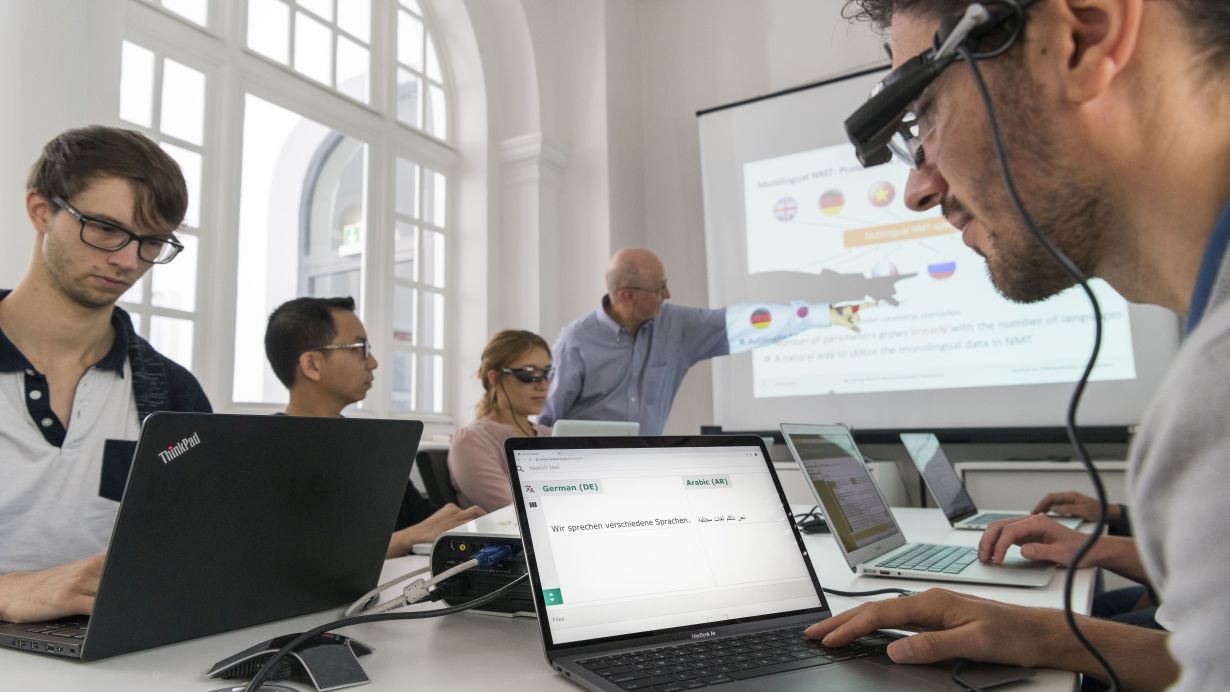US-based Zoom Video Communications acquires kites GmbH, a spin-off from Karlsruhe Institute of Technology (KIT) dedicated to developing real-time machine translation (MT) solutions. This was announced by Zoom this afternoon (June 29, 2021). In addition, Zoom will invest in further research work at the Karlsruhe site and is also considering the establishment of an R&D center in Germany.
“The Corona pandemic has clearly demonstrated the enormous importance of ICT technologies for our working environment and our everyday lives. For many years, the KIT scientists have been researching into suitable language technologies that have been applied successfully by the kites team,” says Professor Holger Hanselka, President of KIT. “The fact that Zoom is now acquiring this spin-off and driving the expansion of the team in Karlsruhe is a logical step that makes these promising solutions available to the greater public. Zoom’s investment in further research in Karlsruhe is a great asset for KIT, the city, and the entire Karlsruhe region.”
“One of KIT's core tasks is the development of applications for industry and society based on scientific findings. This is exactly what kites GmbH has been doing – with impressive success. It is a very good example of the innovative activities of our researchers,” adds Professor Thomas Hirth, Vice President for Innovation and International Affairs at KIT. “These solutions can promote international understanding, strengthen networking, and overcome borders.”
The two kites co-founders, Professor Alexander Waibel and Dr. Sebastian Stüker, are working on viable products that automatically process natural and spontaneous speech using artificial intelligence methods. They founded kites in 2015 with the aim of implementing the results of their research in real-world applications. The company’s fields of activity include automatic speech recognition, machine translation, language assistance, technical support for human interpreters, and simultaneous language translation. The kites team consists of twelve researchers and will support Zoom’s engineering team in the future. Together, they aim to advance machine translation and provide multilingual translation capabilities to make Zoom meetings more productive and efficient for Zoom users.
“We founded kites with the goal of breaking down language barriers and making cross-linguistic interaction an integral part of our daily lives. We have long appreciated Zoom for its ability to easily connect people all over the world,” says Alexander Waibel, Professor of Computer Science at KIT and co-founder of kites. “We are convinced that Zoom is the best partner for kites to realize our goals. We are looking forward to advance our developments now together with Zoom as a true innovation driver.”
“Our primary interest lies in translating our expertise to viable products that automatically process natural language. In particular, our technologies are targeted at real-time applications,” explains Sebastian Stüker, founder and CEO of kites and head of the Multilingual Speech Recognition junior research group at KIT. “These enable, for example, automatic, simultaneous language translation, implemented as software-as-a-service, or automatic subtitling of videos in many languages. This makes them an ideal fit for Zoom's services.”
Among other things, the work of Waibel and Stüker builds on the Lecture Translator developed by them, which has been overcoming language barriers for international students with simultaneous lecture translations at KIT since 2012.
Stüker and the kites staff will maintain the company base in Karlsruhe, where Zoom plans to invest in expanding the team. In addition, Zoom is considering the establishment of an R&D center in Germany. Alexander Waibel is headed to become a Zoom Research Fellow, a role in which he will advise on Zoom’s MT research and development.
In close partnership with society, KIT develops solutions for urgent challenges – from climate change, energy transition and sustainable use of natural resources to artificial intelligence, sovereignty and an aging population. As The University in the Helmholtz Association, KIT unites scientific excellence from insight to application-driven research under one roof – and is thus in a unique position to drive this transformation. As a University of Excellence, KIT offers its more than 10,000 employees and 22,800 students outstanding opportunities to shape a sustainable and resilient future. KIT – Science for Impact.

